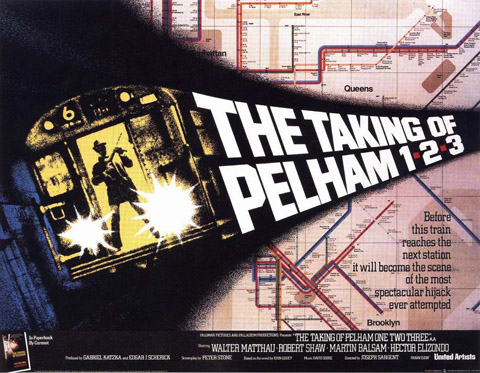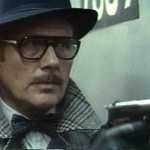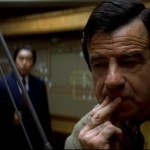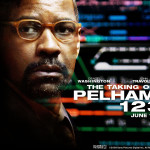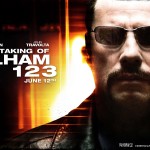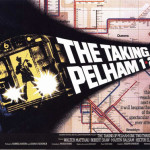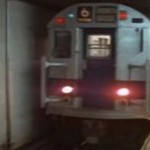Recently I analysed the franchise film phenomenon, with particular reference to the Oceans series. This time I want to talk about inferior remakes, using the example of a classic 1974 movie being remade in 2009, both called The Taking of Pelham 123. I could have chosen many other examples, not least a film I have long cherished – The Day of the Jackal – being turned into a dog’s breakfast of a movie under the title of The Jackal. And indeed, many thousand more.
How often is a remake as good as the original, let alone better? This reviewer can’t think of a single example that has gained in the retelling. In most cases, the original is a taut tale, simply told and all the more effective for that. The remakes tend to be star vehicles and a gratuitous excuse for the stars in question to go so far over the top they are practically flying. The scripts are updated by virtue of spraying multiple expletives in all directions, involve high technology not available for the original movies, and the plots are always padded out with all manner of unnecessary bells and whistles to satisfy American focus group audiences. No, more than that: they throw the proverbial kitchen sink at it, having apparently never learned the dictum of noir movies, that less is often more.
In some cases, foreign movies are remade in American English since the movie industry deems (wrongly) that we can’t abide subtitles, but in translation they frequently lose the entire raison d’être. One example worth mentioning is George Sluizer’s original 1988 Dutch movie, The Vanishing, was a legend in its own lunchtime. At the time I first saw it on British TV, I was hooked and appalled in equal measure. The ending shocked those who saw it, though the same device has since been used repeatedly. Sluizer was invited over to Hollywood to direct a remake as a star vehicle for Keifer Sutherland and Jeff Bridges, which with studio insistence had a ludicrous happy ending tacked on. It was totally absurd, inferior in every way and destroyed the tension created with such artistry in the original.
Why bother, you might ask? The simple answer is to cash in on the name and plot of the original, often with stars modern audiences know well, but if the remakes are travesties they are surely counterproductive? To a Hollywood exec, it’s only the takings that count. These men are ruthless and money-grabbing, and they don’t care how many reputations they ruin along the way.
In this case, the end result is predictable as it is awful. The original movie saw Robert Shaw‘s “Mr Blue” (long before the colour motif was revived by Tarantino in Reservoir Dogs) leading a gang that hijack a New York subway train and send precise instructions for a ransom to be brought to the train via Lieutenant Zachary Garber, drolly played by the marvellous Walter Matthau, but without any indication of what sleight of hand will be used to escape with the money. What makes this an authentic vision is the gritty reality of life running the subway system, of the dark wit of the staff, their pride in the system and the personal integrity they place in making sure the trains run on time.
The remake pitches a foul-mouthed Ryder (John Travolta) into direct negotiation with a straight-faced Garber in the person of Denzel Washington, other than when a police negotiator takes over briefly, prompting Ryder to throw a major wobbler and kill the motorman who might otherwise have driven the train (so Garber has to do the job, natch!) My heart sank; what a dismal twist to add. It changes a number of key points of the plot, and ends with Washington’s Garber killing Travolta’s Ryder, followed by a nauseatingly gushy speech by mayor James Gandolfini (a far cry from the jovially menacing Tony Soprano.)
Where the original was cool, sharp, witty and tense, the newer version is loud, whingey, unpleasant and never inspires the viewer to care about the characters or their inevitable fate. At no point is the story in the remake as coherent as the original, the direction as watchable or the acting other than screechy and patronising. The tension so palpable in the 74 movie is lost amidst Travolta’s Ryder mouthing off and shooting anyone who gets in his way. The essence of the suspense thriller, defined so precisely by Hitchcock, is sacrificed on the altar of what the makers would see as high-octane action, but which in practice is simply boring. Why would anyone want to watch such a hash of a remake, unless they were simply collectors of the Travolta and/or Washington oeuvre? Maybe modern audiences can’t relate to anything older than they are, in which case more fool them – all the greatest movies are 30 years older and more.
Oh, and in case you were wondering what Hitchcock said on this subject:
“Suspense is like a woman. The more left to the imagination, the more the excitement.”
Alas, Hollywood’s idea is to spoon feed the entire story and to stop every five minutes to allow the audience to catch up by relaying the plot to date. Nothing whatever is left ambiguous, let alone to the imagination. Now had the remake been make by Christopher Nolan, there might at least have been some intrigue worth seeing!
PS. Talking of invention, try David Shire’s theme music to the original 123!

